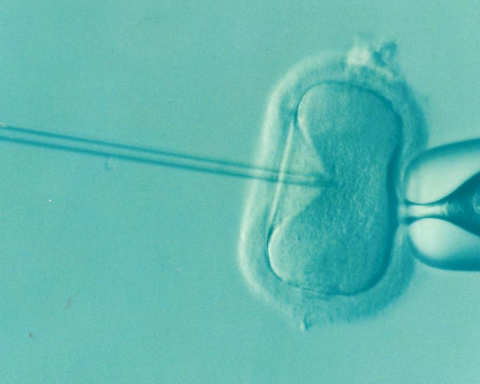Unlike compressor-based systems and cryovats, liquid nitrogen freezers safely deliver temperature-controlled freezing down to -160°C in minutes to preserve drug products, active ingredients, and biological samples
For decades, the pharmaceutical industry has relied on compressor-based systems to freeze drug products, active ingredients, vaccines, protein biologics, and biospecimens in all phases from research and development to storage, transport, and manufacturing.
Unfortunately, traditional mechanical freezers are limited in significant aspects. Compressors are known to break down frequently and require constant maintenance. Cooling and electrical requirements are high. These systems also utilize refrigerant, which limits cooling to approximately -100°C and is known to have a negative impact on the environment. Compressor-based systems also take considerable time to reach the desired temperature, which can lead to cryoconcentration, damage protein structures, degrade active ingredients, and reduce potency.
More recently, liquid nitrogen (LN2) cryovats have been utilized for faster freezing at cryogenic temperatures below -150°C. However, because the liquid nitrogen is not contained, there is some risk of exposure for technicians. Controlling temperature in vats is also difficult, even impossible, since there is no safe, reliable means of adjusting the temperature of the LN2 within the vat.
Now a game changing technology in the form of liquid nitrogen cryogenic freezers combines the best features of compressor-based systems and cryovats, but without the limitations.
Liquid nitrogen freezers circulate contained LN2 within their walls for safe, fast freezing down to -160°C. The units provide the convenience of an upright freezer with sophisticated temperature controls. By eliminating the need for compressors, liquid nitrogen freezers require much less maintenance or replacement, less energy, and are more eco-friendly since refrigerant is not required.
“Liquid nitrogen freezers cool faster because LN2 has a boiling point of -196°C, enabling units [using it] to cool to temperatures as low as -196°C. Most refrigerants have boiling points higher than -100°C, making it difficult for compressor-based freezers [using refrigerants] to operate at temperatures below that. Since the LN2 is self-contained, there is no exposure to the user or products,” says Kim Boyce, President of Reflect Scientific, Inc. (symbol: RSCF), an Orem, Utah-based manufacturer that develops and markets innovative, proprietary cryogenic cooling technologies for the pharmaceutical, biotechnology, medical, and transportation markets. The company has more than 30 patents relating to the use of liquid nitrogen with low-temperature freezers, chillers, and refrigerated systems.
According to Boyce, advanced LN2 freezers are available for the pharmaceutical industry in a variety of configurations and models, under the Cryometrix brand.
Upright LN2 freezers
Upright liquid nitrogen freezers provide adjustable temperatures from +20°C to -160°C. This is considerably lower than conventional upright freezer options, enabling significantly faster freeze times.
LN2 freezers minimize the risk of sample warming and quality deterioration due to door open-close events and offer one of the fastest recovery times in the industry. To safeguard sample integrity, state-of-the-art temperature and data logging can be easily accessed, and multiple security levels set. A redundant cooling system and onboard 7-day battery backup further ensure that processes can continue uninterrupted even upon loss of power.
The approach also uses up to 90% less energy than mechanical, compressor-based units, which significantly reduces operating costs. Unlike compressor-based systems, no heat is exhausted to the room, eliminating the need for expensive HVAC systems for cooling. The freezer has a small footprint that suits space-constrained storage environments.
Pharmaceutical Case Use: Biorepositories
In the pharmaceutical and medical industries, liquid nitrogen freezers are utilized as biorepositories for the long-term collection, cataloging, and preservation of biospecimens such as tissue, cells, DNA, protein, blood, plasma, or urine. These biorepositories are essentially “libraries” where biospecimens are stored for clinical or research purposes.
Biorepositories are vital for understanding diseases, genetics, developing prophylactic and therapeutic agents, and monitoring human population health including outcomes related to environmental exposures.
LN2 Blast Freezers:
Advanced LN2 blast freezers can reliably lower the temperature of pharmaceutical and biological products to as much as -90°C in minutes with a greatly reduced risk of sample damage and significantly increased production throughput.
As an option, blast freezers can be designed to “do double duty” by rapidly thawing product when required using one machine. This can streamline throughput and eliminate the need for separate freezing and thawing equipment.
Pharmaceutical Case Use: Drug substances, vaccines, protein biologics, blood plasma
LN2 blast freezers are used to slow the rate of active-ingredient degradation of drug substances, vaccines, and protein biologics during storage.
For pharmaceutical research and at blood banks, blast freezers are used to rapidly freeze and store a range of thermally sensitive products such as blood plasma and cryoprecipitate. How quickly various blood plasma products are processed and frozen can affect the value and type of product produced, and even its viability.
Mini LN2 Blast Freezers
As the name indicates, mini LN2 blast freezers are smaller benchtop versions for pharmaceutical use where very quick freezing is necessary in a constrained space. Using only a small amount of LN2 from a portable dewar tank, these systems can cool from 20°C to -80°C in under two minutes. The temperature is adjustable from +40°C to -90°C.
Pharmaceutical Case Use: R&D, limited production
Pharmaceutical manufacturers use mini LN2 blast freezers to rapidly freeze and thaw thermally sensitive materials in the R&D phase for new drugs, vaccines, and biological products. It is important to establish the temperature profile of these materials to determine how products will respond to expected temperature fluctuations during transport, storage, and distribution. The compact units can simplify testing with temperature profile recipes to further expedite R&D, quality control, and even low-volume production.
The pharmaceutical industry has long used conventional compressor-based freezers and cryovats while tolerating the limitations. Now liquid nitrogen freezers are proving to be safer, faster, more reliable, eco-friendly alternatives that enable superior temperature control with less maintenance and energy use.
###
By Del Williams: Del Williams is a technical writer based in Torrance, California.





